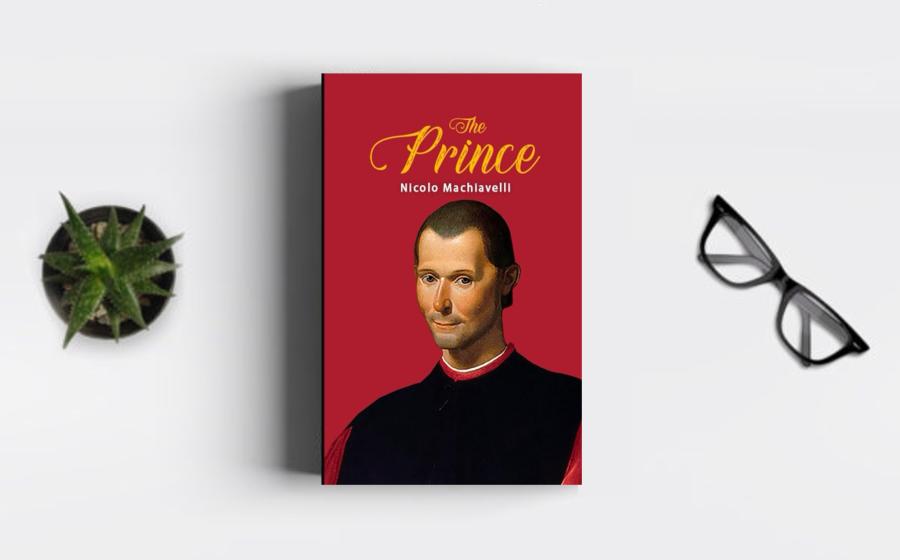"The Prince," written in the early 16th century,
stands as a cornerstone of political philosophy and
continues to exert profound influence on the
understanding of power and governance. Originally
presented as a practical guide for rulers, "The Prince"
offers Machiavelli's insights into the nature of
politics, leadership, and statecraft. Its enduring
relevance lies in its exploration of timeless principles
and strategies that transcend historical contexts,
providing a blueprint for political maneuvering and
governance that resonates across centuries.
"The
Prince" is structured as a series of letters to Lorenzo
de' Medici, aiming to advise and counsel the young
ruler. Machiavelli's work is characterized by its
pragmatic approach to politics, divorcing itself from
ethical or moral considerations to focus on the
acquisition and maintenance of power. The central theme
revolves around the concept of Virtu, a term not
necessarily tied to moral virtue but signifying the
qualities and traits a ruler needs to be effective and
successful.
One of the enduring aspects of "The
Prince" is Machiavelli's stark realism about the nature
of power and the inherent challenges of governance.
Rather than prescribing an idealized vision of rulership,
he dissects the harsh realities faced by leaders. His
recognition that rulers must sometimes resort to
cunning, manipulation, and ruthlessness to secure their
positions sets "The Prince" apart as a pragmatic
treatise on politics. This stark realism remains
relevant across time, as political leaders throughout
history have grappled with the complexities and moral
dilemmas inherent in wielding power.
The concept
of Virtu as presented in "The Prince" underscores
Machiavelli's belief in the adaptability and flexibility
of rulers. Virtu encompasses a range of qualities,
including decisiveness, strategic thinking, and a
willingness to act ruthlessly when necessary. The
timeless nature of these qualities makes "The Prince"
applicable to various historical periods and political
landscapes. The adaptability of Virtu to different
contexts allows readers to extract principles that can
be applied to diverse political scenarios, making
Machiavelli's work a perennial source of strategic
insight.
Machiavelli's exploration of the
relationship between fortune and skill is another
element that contributes to the timelessness of "The
Prince." He acknowledges the role of fortune or luck in
political success but emphasizes that a skilled ruler
can navigate and even manipulate these external factors.
The interplay between fortune and skill remains a
relevant consideration for contemporary political
leaders who must contend with unpredictable events and
navigate a complex global landscape.
The advice
offered in "The Prince" often revolves around the
concept of maintaining stability and order within a
state. Machiavelli asserts that the ruler's primary duty
is to ensure the stability of the state, even if it
requires actions that may be perceived as ruthless or
morally questionable. This emphasis on stability echoes
through the annals of political history, as leaders
grapple with the tension between moral considerations
and the exigencies of statecraft.
Machiavelli's
exploration of the relationship between the ruler and
the governed also contributes to the timeless appeal of
"The Prince." He delves into the complexities of human
nature, recognizing that people can be fickle and driven
by self-interest. The manipulation of public perception,
the importance of maintaining a sense of fear, and the
strategic use of generosity and cruelty all find
resonance in the dynamics of political leadership
observed throughout history. The enduring relevance of
Machiavelli's insights into human behavior ensures that
"The Prince" remains a valuable resource for those
interested in the intricate dance between rulers and
their subjects.
The concept of the
"Machiavellian" leader has become synonymous with
cunning, pragmatism, and an unyielding focus on power
dynamics. This enduring association underscores the
profound impact of "The Prince" on popular culture and
political discourse. The term "Machiavellian" continues
to be invoked to describe individuals or actions
characterized by strategic thinking, manipulation, and a
relentless pursuit of power. The enduring presence of
Machiavellianism as a descriptor attests to the lasting
imprint of "The Prince" on our understanding of
political strategy and leadership.
Machiavelli's
exploration of the cyclical nature of political fortune
contributes to the timeless nature of his work. He
observes that states often experience cycles of rise and
decline, influenced by both internal and external
factors. This cyclical perspective remains relevant in
contemporary political analysis, where scholars and
leaders alike recognize the ebb and flow of power and
the potential for states to rise or fall based on a
variety of influences.
The moral ambiguity
presented in "The Prince" is a hallmark of its enduring
philosophical impact. Machiavelli challenges
conventional ethical norms and presents a vision of
political realism that prioritizes effectiveness over
moral rectitude. This departure from conventional moral
philosophy opens the door to a more pragmatic and
strategic approach to politics - one that resonates with
leaders navigating the complexities of the modern world.
The tension between ethics and efficacy remains a
central theme in political philosophy, ensuring that
"The Prince" continues to stimulate debates and
discussions.
"The Prince" by Niccolo Machiavelli stands as a timeless philosophical work that transcends its historical context. Machiavelli's pragmatic insights into power, governance, and the complexities of political leadership have left an indelible mark on the field of political philosophy. The enduring relevance of "The Prince" lies in its realistic portrayal of political dynamics, the adaptability of its principles to diverse contexts, and its influence on the understanding of leadership across centuries. Whether regarded as a handbook for statesmanship or a cautionary tale, Machiavelli's work remains a cornerstone in the exploration of political power and the enduring complexities of human governance.






